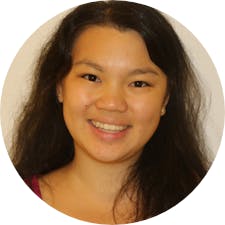If there is any subject that's uniquely and unfairly stigmatized at Duke, it's math. I've heard the phrase "I hate math" more than I've heard "I hate philosophy" or even "I hate organic chemistry." And even if the problem stems from the general K-12 attitudes towards math education in America before, but I'd argue that Duke's math department only compounds the problem.
For starters, most people in college base their dislike for math on calculus, the one subject that makes up all the introductory level math courses at Duke (with the exception of a few seminars). America is unique in that the entire primary and secondary system of education climbs up to and only to calculus. Looking at the International Baccalaureate curriculum used around the world, calculus is seen as merely one subject in the realm of math, and students have the option to explore topics like set theory and abstract algebra in high school. At Duke, the vast majority of students probably don’t even know what abstract algebra is. (No, it is not what you learned in Algebra 1).
There is a sound reason as to why the curriculum is structured this way—calculus is arguably one of the most applicable math classes, a prerequisite (and sometimes the main barrier) for many majors like engineering, economics, computer science and physics. But very few people are interested in things solely for their applications, and at its core, math is as much of an art as painting or philosophy.
In his most famous essay, mathematician Paul Lockhart wrote that it would be an absolute nightmare if a committee of "important people" decided that painting was an essential skill to stay competitive in a global economy and redesigned the painting curriculum. In primary school, students were told to memorize their colors, recognize different types of applicators, and clean paintbrushes. In middle school, they took Pre-Paint By Numbers. In high school, they progressed to Pre-AP and AP Paint by Numbers. And only those who had mastered painting by numbers and still had retained an interest in paint in college and decided to professionally pursue painting would ever get the chance to ever freely apply paint to a canvas. Wouldn’t this be an absolute nightmare?
No one could imagine this happening to painting, yet this is precisely what has happened to the math curriculum. Lockhart argues that this is because the public knows what good art looks like. Step in any art gallery and you'll see a public display of painting. Yet very few people have a good understanding of what mathematicians actually do. Sure, Andrew Wiles proving Fermat's Last Theorem is interesting, but what does that actually mean? Outside of the calculus-focused school curriculum, the general population doesn’t comprehend academic math.
Last Thursday, the Duke math department brought in Eugenia Cheng, a math professor at an art school in Chicago, to give a talk called "How to Bake Pi: making abstract mathematics palatable." The talk included discussion of cake, cookies, braiding, disastrous recipes and, of course, math. Afterwards, she said that her dream would be a book like the one she wrote to be offered as a summer reading book, like Just Mercy was for the incoming freshman class. The very idea is almost unthinkable, but if students at an art college can find math interesting, who's to say Duke students can't?
Additionally, math has benefits that extend beyond math. In the same way that humanities classes teach their scholars to critically construct and evaluate an argument, math classes arguably do the same even more efficiently. As Richard Rusczyk, founder of the Art of Problem Solving writes:
"We use math to teach problem solving because it is the most fundamental logical discipline. [...] There are many paths to strong problem solving skills. Mathematics is the shortest. Problem solving is crucial in mathematics education because it transcends mathematics. By developing problem solving skills, we learn not only how to tackle math problems, but also how to logically work our way through any problems we may face. The memorizer can only solve problems he has encountered already, but the problem solver can solve problems she's never seen before. The problem solver is flexible; she can diversify. Above all, she can create."
Even if people gained this appreciation for math, the Duke math curriculum makes most classes very inaccessible. Ironically, most of the higher level math classes that might actually interest students who didn't like calculus require calculus as a pre-requisite. Why are three semesters of calculus required to take a class on probability? Why are two semesters of calculus required to learn Abstract Algebra? Of course, there must be applications in calculus in these realms, but most of us are able to understand many concepts in probability without knowing multivariable calculus. It may be true that students who did well in calculus are likely to do well in abstract algebra. But just because someone would do well in abstract algebra doesn't necessarily mean that they would succeed in calculus.
Changing the nationwide K-12 math curriculum is obviously a monstrous task, but Duke is an individual institution, bound pedagogically by very few restrictions. Wouldn't it make sense to start perpetuating math as an interesting and creative realm, instead of simply as an unwanted prerequisite for everyone except math majors?
Before coming to Duke, I had gained what I felt like was a small appreciation for math and was considering majoring in it. I don’t see the hump of calculus necessarily stopping me from studying math here at Duke, but I do think there could be much more done to improve the general student body's perception of math.
Amy Fan is a Trinity freshman. Her column, "fangirling," runs on alternate Tuesdays.
Get The Chronicle straight to your inbox
Signup for our weekly newsletter. Cancel at any time.

Amy Fan is a Trinity senior. Her column, "fangirling," runs on alternate Thursdays.
